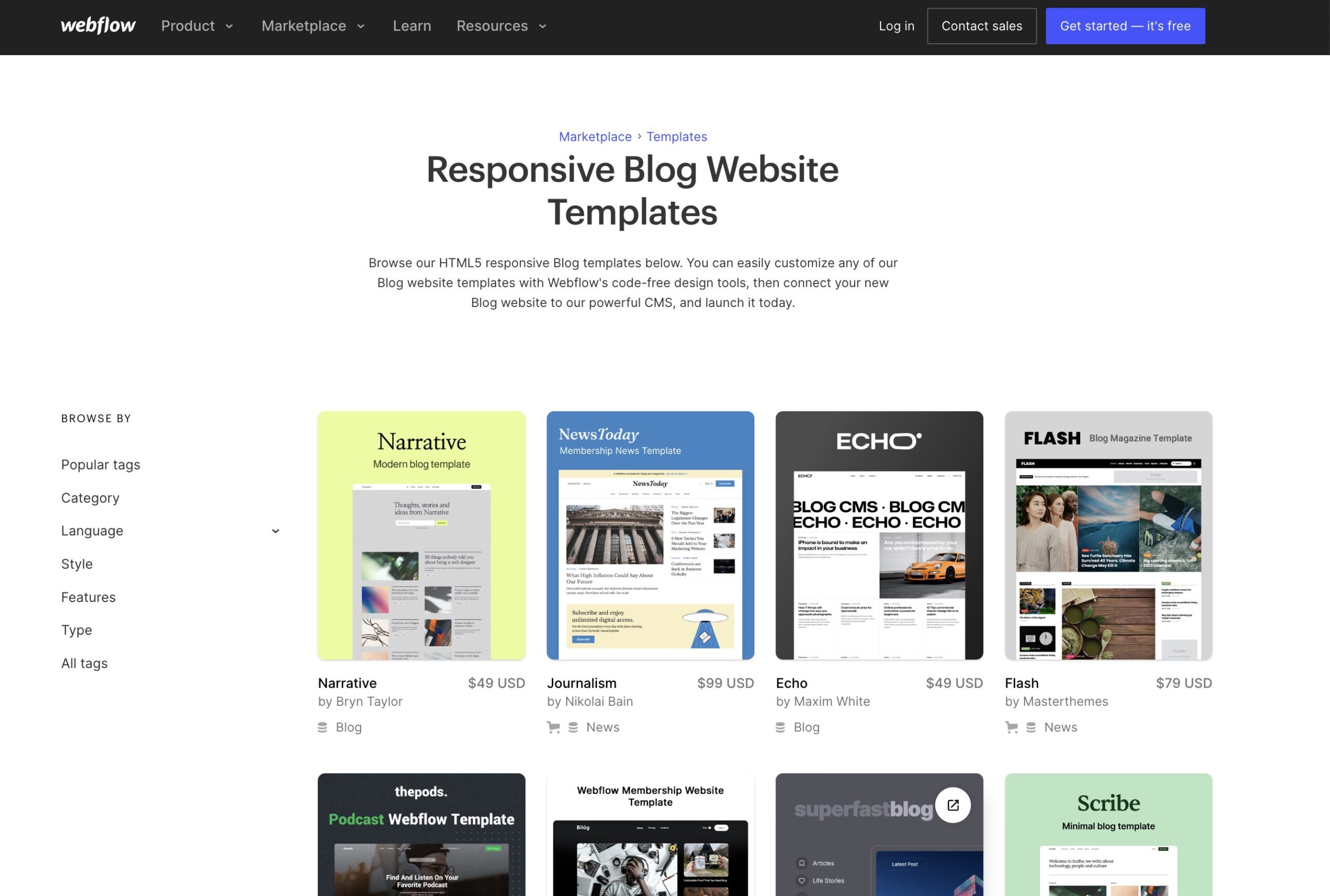Are you an entrepreneur, content creator, or small business owner asking yourself, “Is blogging worth it?” If so, then this post is for you.
Blogging can be a great way to increase your visibility and reach potential customers. It also helps build trust with current customers by providing them with valuable insights into your industry.
In this blog post, we will cover the benefits of blogging, how to start one up, and strategies for growing your audience. We’ll provide tips on writing engaging content and discuss some tools that make managing your efforts easier. So if you’re wondering whether starting a blog is worth it – keep reading.
Is Starting a Blog Worth It?
What You Need to Know Before Starting a Blog
The first step in starting your own blog is understanding the basics of blogging and what it takes to be successful.
This includes knowing how to create content, build an audience, market your blog, and monetize it effectively.
There are many different types of blogs out there, such as travel blogs, personal finance blogs, lifestyle blogs, fashion blogs, business blogs, etc., so make sure you pick one that fits your goals and interests before you get started.
What Does It Take To Make A Successful Blog?
Building a successful blog requires dedication, hard work, consistency, creativity, and most importantly patience.
Creating great content regularly is critical for gaining readership, as well as engaging with them through comments or social media platforms like Twitter or Instagram.
Additionally, having a good SEO strategy can help boost traffic significantly over time which will help drive more leads & revenue into your business.
Lastly, networking within the blogging community can also open up opportunities for collaborations & partnerships down the line, which could prove invaluable for growing your blog even further.
How Do I Monetize My Blog?
Once you’ve built up enough traffic on your site then, monetizing it becomes much easier since there are several options available such as advertising networks (e.g Google Adsense), affiliate marketing programs (like Share-a-Sale), or creating digital products and services such as e-books or online courses, etc.
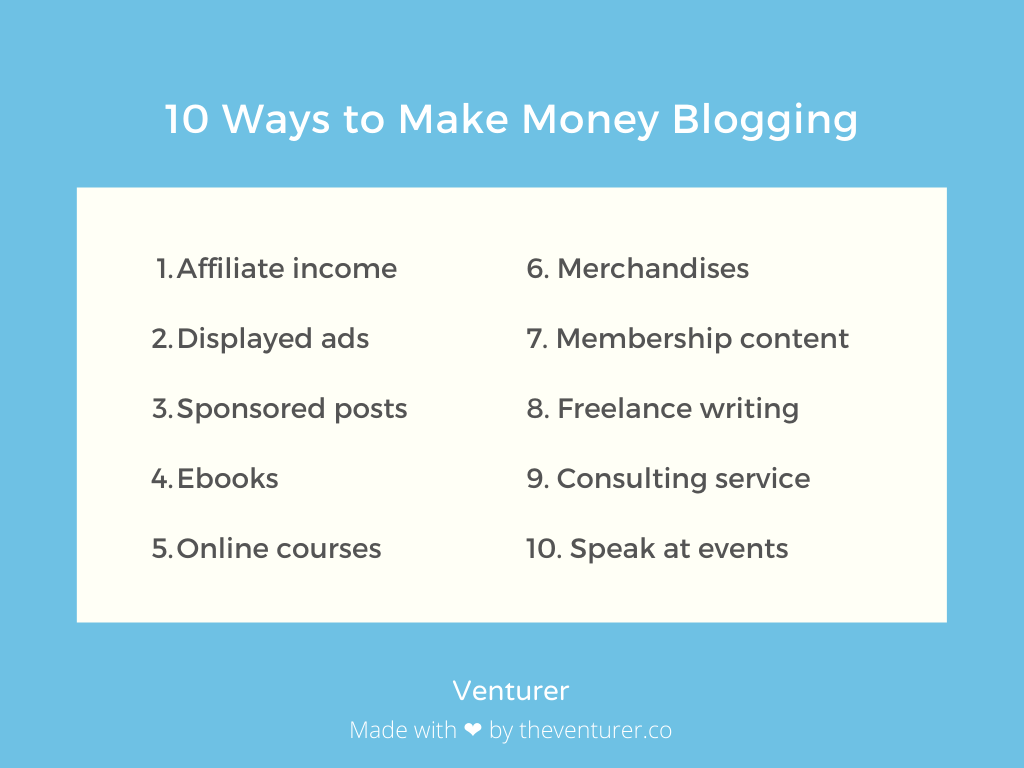
Ultimately, starting a blog is a matter of personal preference; however, if done correctly, it can be highly rewarding both financially and emotionally.
How do you start a blog – WordPress is the Most Popular Platform
Setting up a blog is much easier thanks to blogging platforms like WordPress, which power over 40 percent of websites worldwide. They offer free software downloads, so all you need to pay for is web hosting and domain name registration.
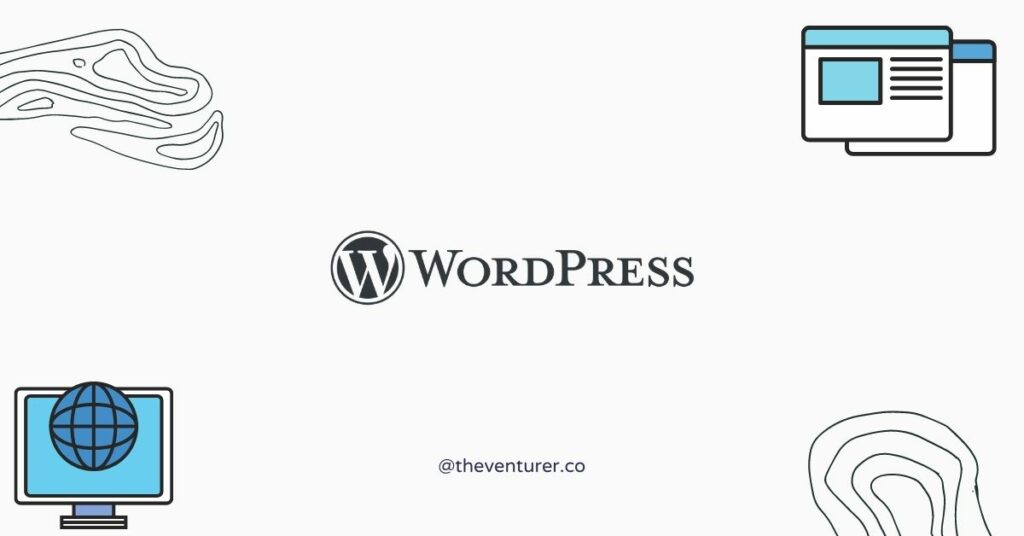
Depending on your budget, I’d recommend setting up your WordPress blog with HostGator or Kinsta.
For a limited budget, HostGator is a good option, which starts at around $2 a month to host your WordPress blog. You can use our discount code “VENTURER” for 65% off here.
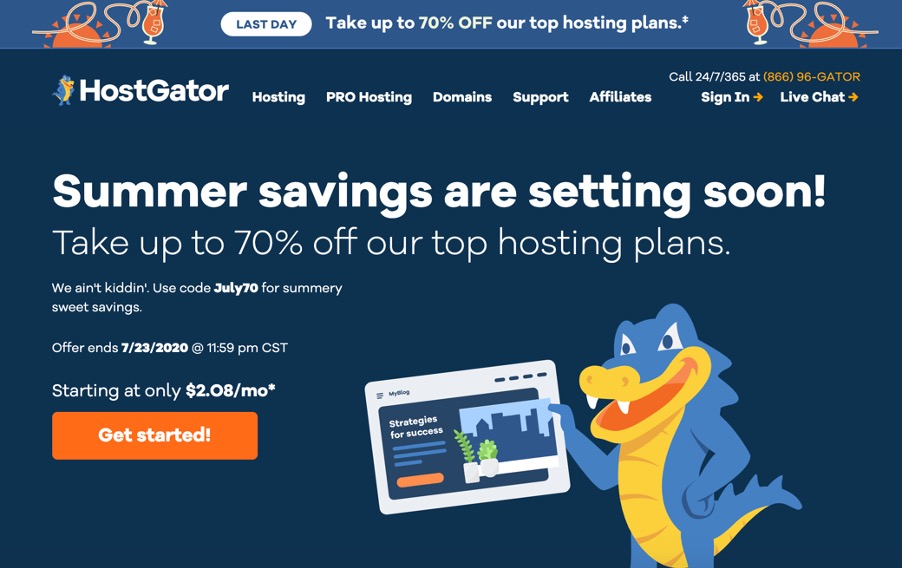
If you are serious into your blogging journey, use Kinsta as your web hosting service. It provides better web performance.
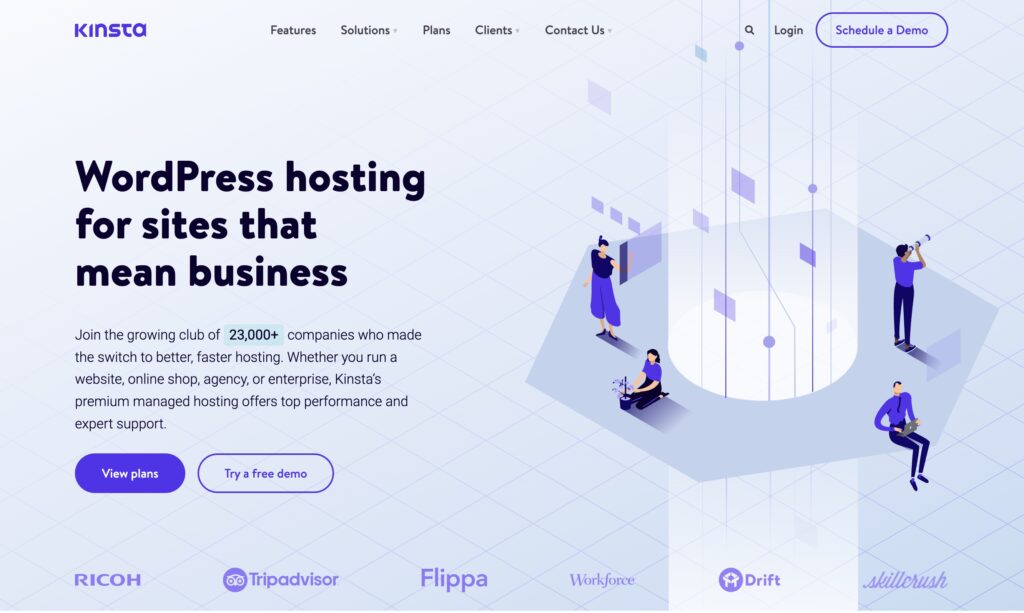
Now, we’ll go into more detail about the benefits of blogging, a step-by-step guide to start a blog, strategies to grow your blog, and tools to help you start a blog more efficiently.
Benefits of Blogging
If you’re a business owner, blogging can be a great way to grow your business and increase visibility as part of content marketing efforts. It’s an effective tool for building brand awareness, improving SEO rankings, and establishing authority and credibility in your industry.
If you’re an individual looking to make money blogging, starting a profitable blog is not impossible. Many bloggers have achieved full-time income with their blogs.
Here are some of the key benefits of blogging:
Increased Visibility and Brand Awareness
Blogging is a powerful way to boost visibility for your business or website. By creating content that resonates with readers, you can build trust with potential customers who may not have heard about you before.
Additionally, when people share your blog posts on social media platforms such as Twitter or Facebook, it increases the reach of your message even further.
Improved Search Engine Rankings
Search engine optimization (SEO) is essential for any website looking to get more traffic from search engines like Google or Bing.
When done correctly, blogging can help an entire website improve organic search engine rankings by providing fresh content that contains relevant keywords related to what people are searching for online. This helps drive more targeted visitors to your site, which could lead to increased sales or leads over time.
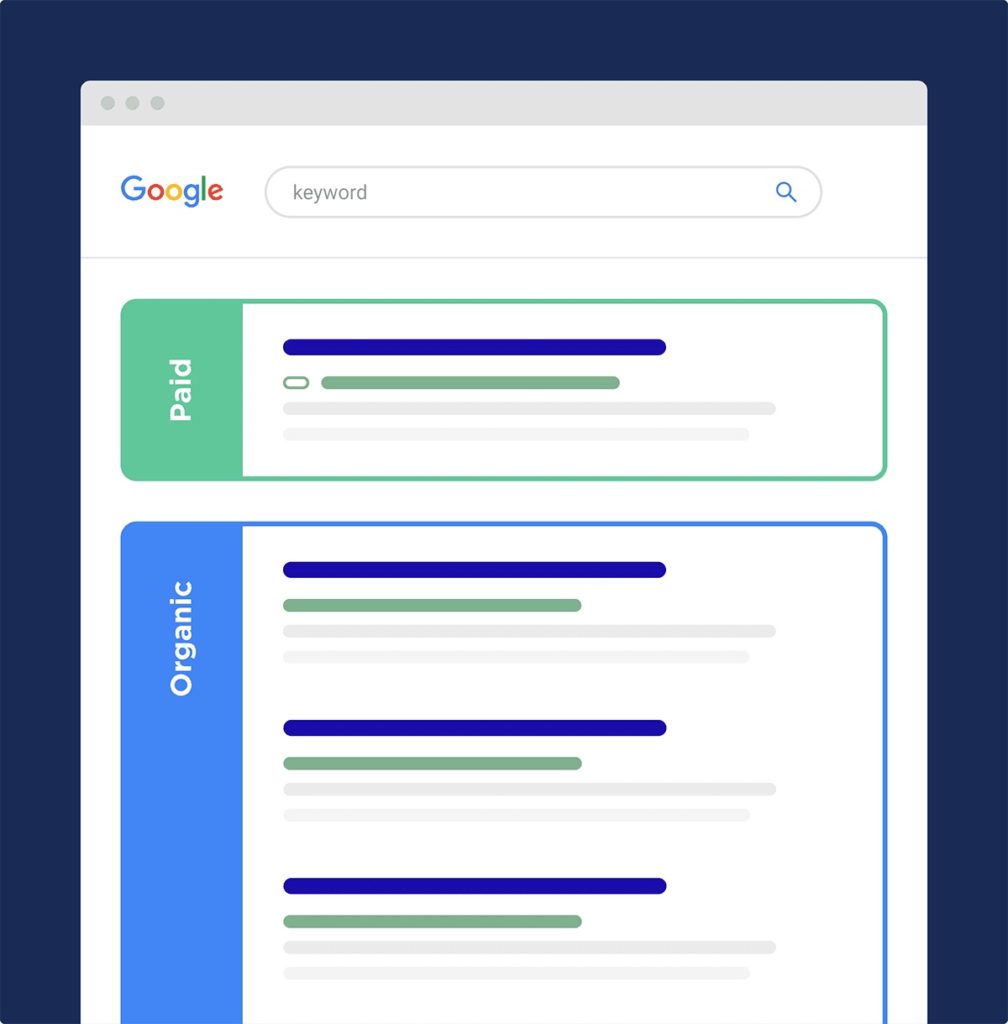
By consistently producing high-quality blog posts related to topics within your industry, you can establish yourself as an expert in the field, which will help build trust with potential customers or clients.
As you become known as a reliable source of information within the space, this will also give readers another reason why they should choose you over competitors without a strong online presence through blogging activities.
Blogging offers many benefits, from increased visibility and SEO rankings to establishing authority and credibility.
Now that you know the advantages, let’s take a look at how to start your first blog here.
How to Start a Blog
Starting a blog is an exciting way to share your thoughts, ideas, and experiences. But it can be intimidating if you don’t know where to even start a blog from. Fortunately, getting started blogging doesn’t have to be complicated or expensive. Here are some tips for setting up your own blog:
Choose Your Platform
There are many different blogging platforms available today, such as WordPress, Webflow, Squarespace, and more. Each platform has its own advantages and disadvantages, so it’s essential to do research before deciding which one is right for you.
For example, WordPress offers more customization options but requires more technical knowledge than other platforms like Webflow or Squarespace.
Pick a Domain Name and Hosting Provider
Once you’ve chosen a platform, the next step is picking a domain name and hosting provider.
A domain name is what people type into their browser when they want to visit your site (e.g., www.exampleblogsite).
Most hosting providers offer packages that include both domain name registration and web hosting services in one package at an affordable price point – usually around $10/month or less, depending on the provider you choose.
If you’re on a small budget, you can start with HostGator. You can use our unique promotion code “VENTURER” to get 65% off here.
If you’re more serious about starting a blog and are willing to invest $25 a month, use Kinsta to host your blog. Kinsta is a web hosting service that offers better web performance. We also host Venturer with Kinsta.
And if you have a more specific domain name in mind, check out NameCheap, where you can find a lot of domain names at an affordable price.
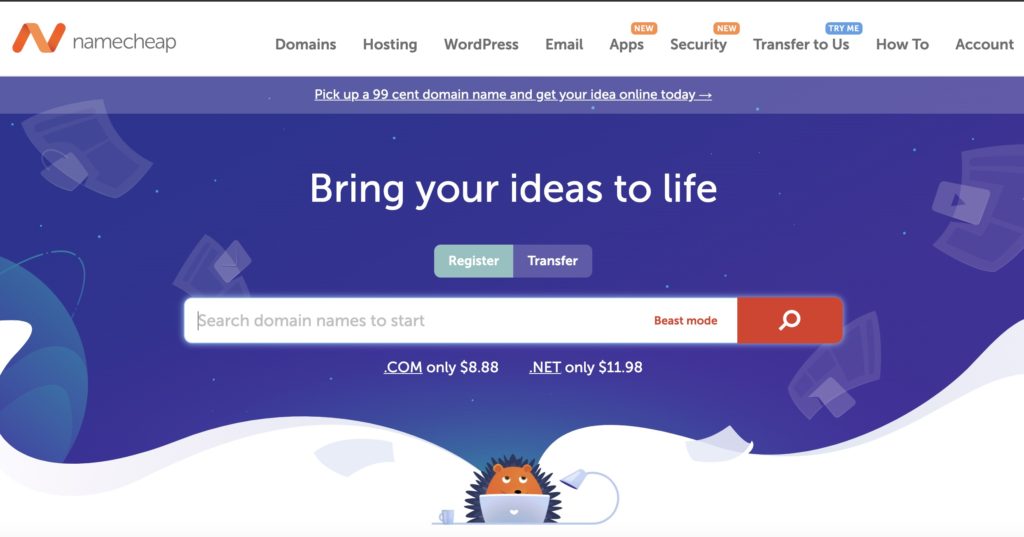
Design Your Blog
Now that your domain name is registered and web hosting is set up, it’s time to design your site.
This includes choosing color schemes, font styles, and sizes, adding images and videos, creating menus and navigation bars, etc.
Additionally, most blogging platforms allow users to install plugins that extend the functionality of their sites by adding features such as contact forms or social media integration tools.
For example, if you’re using WordPress, you can use Elementor to design your site. Elementor offers a lot of beautiful blog templates and a drag-and-drop website builder, making it easy for anyone to create a website.
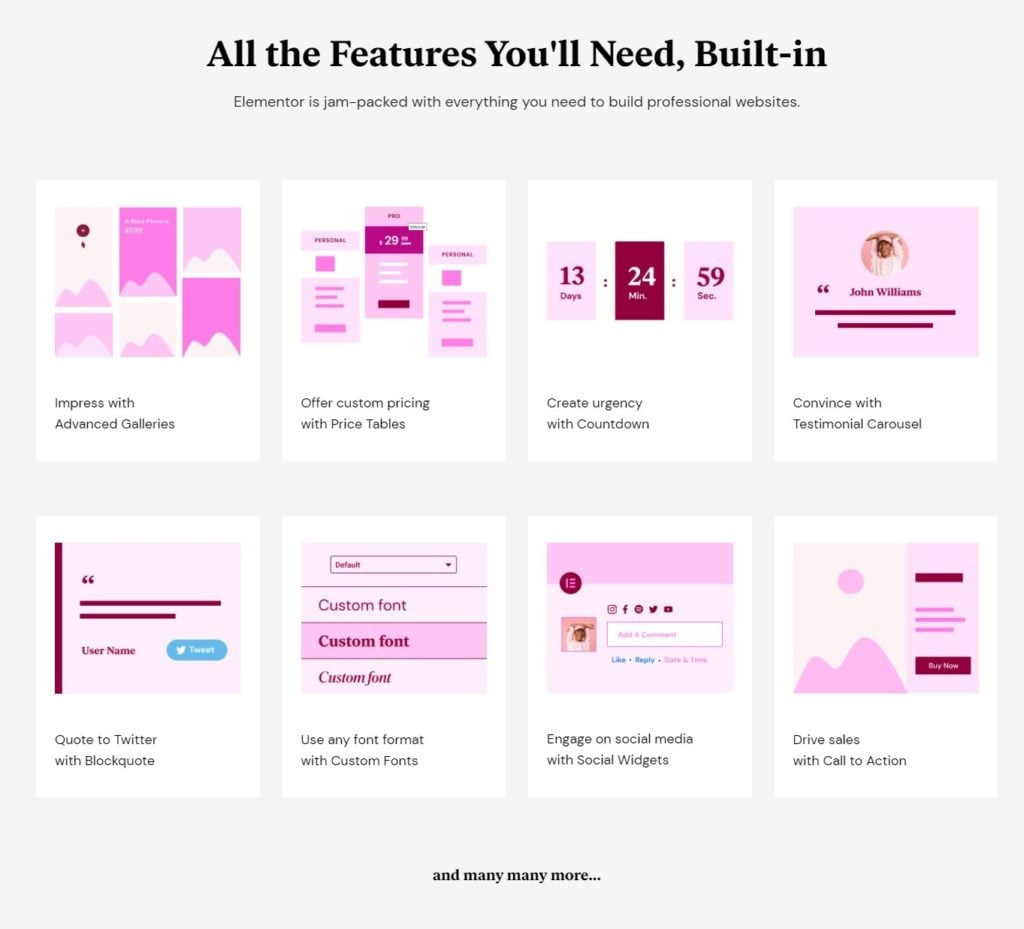
It is important not to overload your site with too many plugins though as this can slow down loading times significantly; make sure only to install those that are necessary for achieving desired results from visitors’ perspective.
Starting a blog can be an exciting and rewarding experience, but it is important to understand the different types of content you can create for your blog in order to maximize its success. In the next section, we will discuss some of these options and how they can help you reach your goals.
Types of Content to Create for Your Blog
Tutorials and How-To Guides
They are a great way to engage readers with helpful information. Tutorials can be step-by-step guides on how to use software, complete tasks, or create something from scratch. They should include detailed instructions that are easy to follow along with visuals such as screenshots or videos when possible.
For example, we’ve created these tutorials and how-to guides for you to create your own blog:
- What Is WordPress? A Beginners’ Guide To Start Using WordPress
- How To Start A WordPress Blog On Hostgator (Step-By-Step Tutorial)
- 8 Best Blogging Platforms To Make Money (Compared And Reviewed)
Opinion Pieces and Reviews
These provide an opportunity for you to share your thoughts about products, services, and trends in the industry. These pieces should be written objectively but still offer insight into what you think about the topic at hand.
When writing reviews, make sure to provide evidence of why you feel a certain way about it so readers can draw their own conclusions based on facts rather than just opinion alone.
For example, we’ve created the following reviews for our readers:
- HostGator Review: Is It The Web Hosting Provider For You?
- Notion AI Review: First-Hand Testing Results (Examples Included)
- Monday.Com Project Management Software Review 2023
Interviews with Industry Experts
The interviews give your blog an edge by providing unique perspectives from professionals in the field who have valuable knowledge and experience related to the topics being discussed.
Interviews should focus on asking questions allowing experts to share their insights while giving readers useful information they may not find elsewhere. This can help create a more engaging experience for readers and establish you as an authority in your niche.
Creating content for your blog can be a great way to engage with your audience, grow your following, and establish yourself as an expert in the field. In the next section, we’ll discuss strategies for becoming new bloggers and growing your audience through blogging.
Strategies for Growing Your Audience
Engage on Social Media Platforms
Social media platforms are a great way to reach new readers and grow your audience. Platforms like Facebook, Twitter, Instagram, LinkedIn, and YouTube can help you spread the word about your blog quickly and easily.
You can use these platforms to share content from your blog and engage with other users in relevant conversations.
For example, if you have a blog about business advice for entrepreneurs, join groups on Facebook or LinkedIn that discuss this topic and start engaging with people there by sharing helpful tips from your blog posts.
Participate in Communities and Forums
Participating in relevant communities and forums is another great way to get more eyes on your content. Look for online communities related to your blog’s topics where you can become an active member by answering questions or providing helpful advice based on what you’ve written about in the past.
This will help build relationships with potential readers and establish yourself as an authority figure within those circles others may look up to when it comes time for them to find solutions to their problems.
Guest Posting
Guest posting is one of the most effective ways of growing an audience because it allows you access to someone else’s established network while giving them something valuable in return – quality content.
Find blogs related to yours that accept guest posts, then pitch them ideas for articles that would be beneficial both for their readership as well as yours (e.g., “How To Optimize Your Blogging Strategy For Maximum Reach”).
Make sure each post includes links back to some of your best work so interested readers can learn more about what you do.
Building an audience for your blog requires a combination of effective strategies. By leveraging social media platforms, participating in relevant communities and forums, and guest posting on other sites in your niche, you can create a steady stream of traffic to your blog.
Now let’s look at tips for writing engaging content that will keep readers coming back for more.
Tips for Writing Engaging Content for Your Blog
Engaging content is essential for keeping readers interested in what you say. Here are some tips to help you create compelling and interesting blog content:
Use Short Sentences and Paragraphs
Keep your sentences short and sweet. Long-winded sentences can be difficult to read, so break them into shorter ones.
Additionally, keep your paragraphs concise by focusing on one main point per paragraph. This will make it easier for readers to follow your post’s flow.
Include Visual Elements Whenever Possible
Adding visuals such as images, videos, infographics, or charts can help break up text-heavy posts and make them more visually appealing.

Not only do they add interest, but they also give readers a better understanding of the topic at hand.
Write With an Authentic Voice
Writing in an authentic voice helps build trust with your audience because it shows that you’re genuine about what you’re saying and not just trying to sell something or push an agenda.
Use language that resonates with your target audience and avoid jargon unless absolutely necessary – nobody likes being talked down to.
Create Compelling Headlines
A great headline should grab attention while accurately reflecting the content of the post itself – no clickbait allowed. Make sure it’s clear yet intriguing enough that people want to learn more about what you have to say without feeling tricked into clicking through if it doesn’t match their expectations once they get there.

Optimizing blog post name for search engines is also important – if you want people who are searching online for topics related to yours to find your blog easily when they type keywords into Google or other search engines such as Bing or Yahoo.
Include relevant keywords throughout the body copy, meta descriptions, title tags, and alt text but don’t overdo it – keyword stuffing won’t do any favors for SEO rankings either.
Blogging is a great way to reach new audiences and engage with existing ones. With the right tools and strategies, you can create content that resonates with your readers.
Now let’s look at some helpful tools to help you manage your blogging efforts.
Tools to Help You Manage Your Blogging Efforts
Managing a blog can be overwhelming, but there are tools available that make it easier.
AI Writing Tools
Writing is a big part of blogging. With the rise of artificial intelligence technology, it’s now possible to write faster and better with the help of AI.
Here are some AI writing tools to help you start a blog more efficiently:
SEO Tools
As we’ve mentioned how SEO is important to increase the exposure of your blog to people searching for your topics on search engines, you’ll need SEO tools to help you with keyword research, content planning, and content editing.
Here are some of the best SEO tools you can use:
Monetization Tools for Blogging
Monetization tools enable you to generate revenue from your blog by selling other people’s products or services or through advertising networks and affiliate programs.
Here are some of the best affiliate networks to join:
Email Marketing Tools
Email marketing services allow you to send out newsletters or promotions directly to subscribers’ inboxes. Here are some of the best email marketing software:
Image Editing Tools
Image editing software enables the easy creation of visuals for your blog content. One of the best tools to create graphics is Canva.
Canva is an online graphic design tool that offers hundreds of templates for featured images, social media posts, logos, infographics, and more.
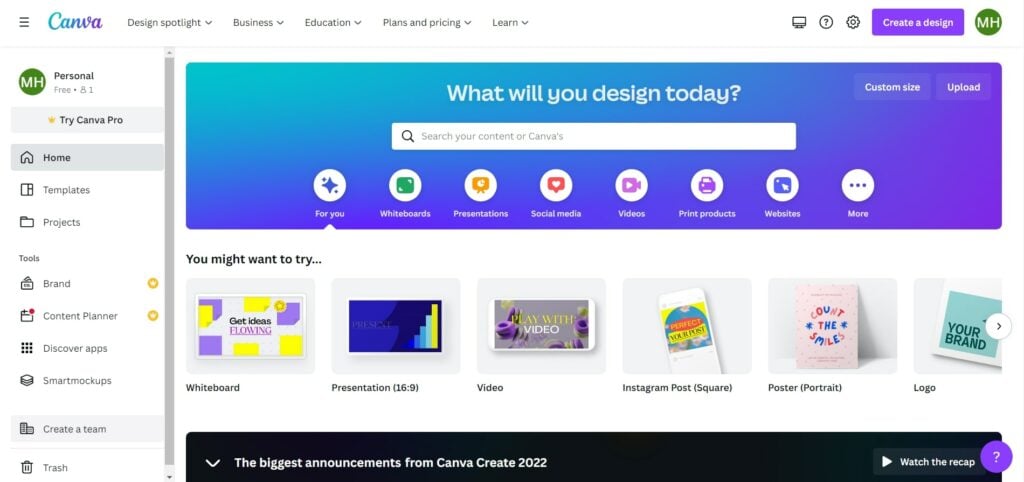
You can use Canva for free here!
Social Media Management Tools
Social media management platforms make managing multiple accounts simpler. Imagine you can schedule posts for Instagram, Pinterest, Twitter and Facebook all from one place! Here are some of the best social media management tools:
FAQs
Yes, blogging is still worth it in 2023. It remains an effective way to reach and engage with your target audience, build relationships, increase brand awareness, and establish yourself as a thought leader in your industry. Blogging also helps boost SEO rankings by providing fresh content for search engines to index.
Additionally, blogs can be used to drive traffic to other parts of your website or products/services you offer. All these benefits make blogging an invaluable tool for businesses looking to succeed online in 2023 and beyond.
Yes, blogging can be a profitable venture. With the right strategy and dedication, bloggers can earn money through affiliate marketing, sponsored content, display ads, and more. Blogging also provides an opportunity to build relationships with readers and with other successful bloggers and businesses in your niche. It’s important to create quality content that resonates with your audience in order to generate revenue from blogging.
Yes, there can be a downside to blogging. While it is an effective way to reach out to potential customers and build relationships with them, it also requires significant time and effort.
Additionally, if the content isn’t well-written or relevant, readers may not engage with it and could even become turned off from your brand.
Furthermore, without proper SEO optimization techniques in place, blogs can get lost in the sea of online content.
Lastly, depending on how you monetize your blog’s success (e.g., ads with google adsense), you may end up sacrificing user experience for profit which could lead to fewer returning visitors over time.
Beginner bloggers can make money by monetizing their blog through a variety of methods. These include affiliate marketing, sponsored posts, display advertising, selling digital products such as e-books and courses, offering services like consulting or web design, and creating subscription content.
It’s important to research the different options available to you in order to find the best fit for your personal blog name. With dedication and hard work, it is possible to generate a significant income from blogging.
Conclusion
Blogging is an incredibly powerful tool for businesses of all sizes, from startups to established enterprises. It can help you build a community around your brand, increase visibility, reach potential customers, and create content that drives engagement. Therefore, the answer to the question “is blogging worth it?” is a resounding yes.
With the right strategies in place early days, you can maximize the benefits of blogging while minimizing the effort required to start a blog and maintain it. So if you’re looking for ways to improve your business’s online presence and customer engagement, consider starting a blog today.



